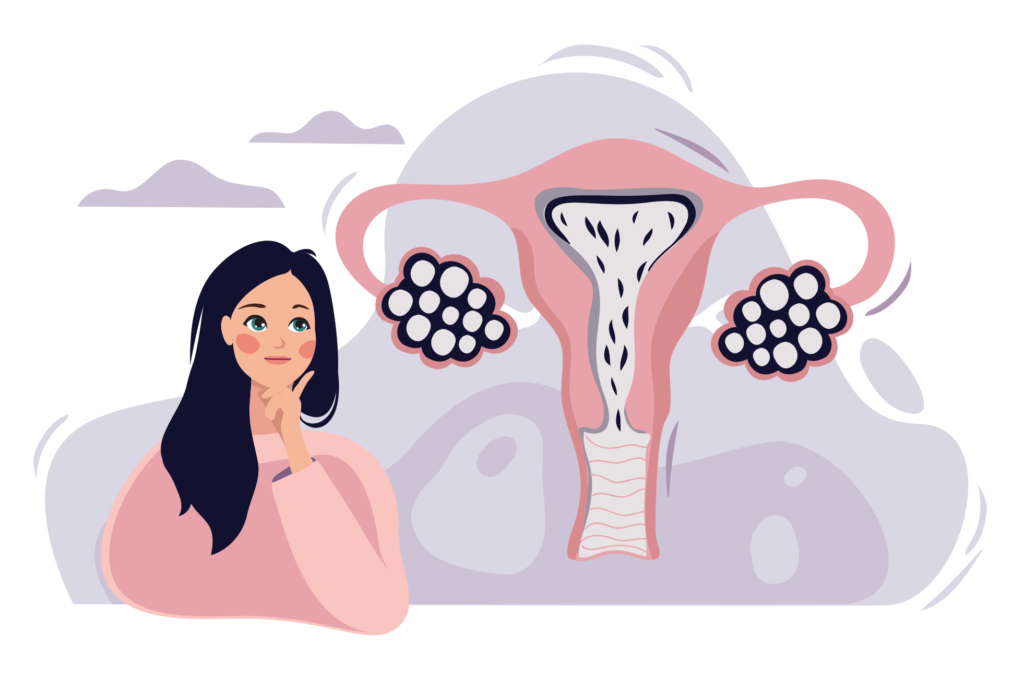What is Polycystic Ovarian Disease?
PCOD or Polycystic Ovarian Disease is a hormonal abnormality with a metabolic and endocrine disorder. The disorder affects women of reproductive age groups between 12-45 years. The disease may occur in any age group after menarche to menopause. Every 1 out of 10 females suffers from PCOD in the world.
The disease causes excessive production of male hormones or androgens. The ovaries enlarge and discharge partial or immature eggs. As a result, the eggs turn into cysts. These cysts tend to create complications in female reproductive systems and can even cause infertility.

Causes of Polycystic Ovarian Disease
Presently, the main reasons for the polycystic ovarian disease are unknown. But besides, there are some reasons behind PCOD, and these are:
Excess production of insulin
Pancreas produces insulin which helps to transfer the food into sugar. The cells of the body utilize this sugar to produce energy. But if the body produces more insulin, then the production of androgen occurs. As a result, it may lead to PCOD.
Genetic factors
PCOD also runs in families. There is a high chance of polycystic ovarian disease in women whose family members undergo the same hormonal disorder.
Low-grade inflammation
Women who suffer from PCOD may have low-grade inflammation. The inflammation causes the ovaries to produce male hormones. However, heart and blood vessels problems are also a part of this inflammation.
Lifestyle
Lifestyle changes can also cause PCOD. Pollution, lack of nutrition, lack of physical movement, or exercises cause metabolic imbalances causes PCOD.
Stress and depression
Stress and depression can affect your lifestyle both mentally and physically. It prevents your hormones from performing in a proper manner that may cause many health issues to include PCOD.
Symptoms of Polycystic Ovarian Disease
- Irregular periods
- Heavy bleeding (miscarriage)
- Unwanted facial hair growth
- Acne
- Weight gain
- Hair thinning
- Sleep apnea
- Type two diabetes
- Gestational problems
- Weight gain
- Headaches
- Oily skin
- Liver inflammation
- Infertility problems
- Increase in blood pressure



Prevention Tips for Polycystic Ovarian Disease
The following are some PCOD prevention options:
- People with diabetes should work hard to keep their blood sugar levels under control.
- Take preventative measures to control your period cycles, whether through medication, exercise, or nutrition.
- With the assistance of diet and exercise, try to maintain a healthy weight.
- You can also utilize medicine to help you manage Polycystic ovarian disease, in addition to the other lifestyle adjustments you’ll need to make to keep your PCOD under control.
Get in touch with our team
Specialised care from the best team of doctors along with a widely trusted high risk pregnancy specialist in Pune. Sail smoothly through high risk pregnancies.